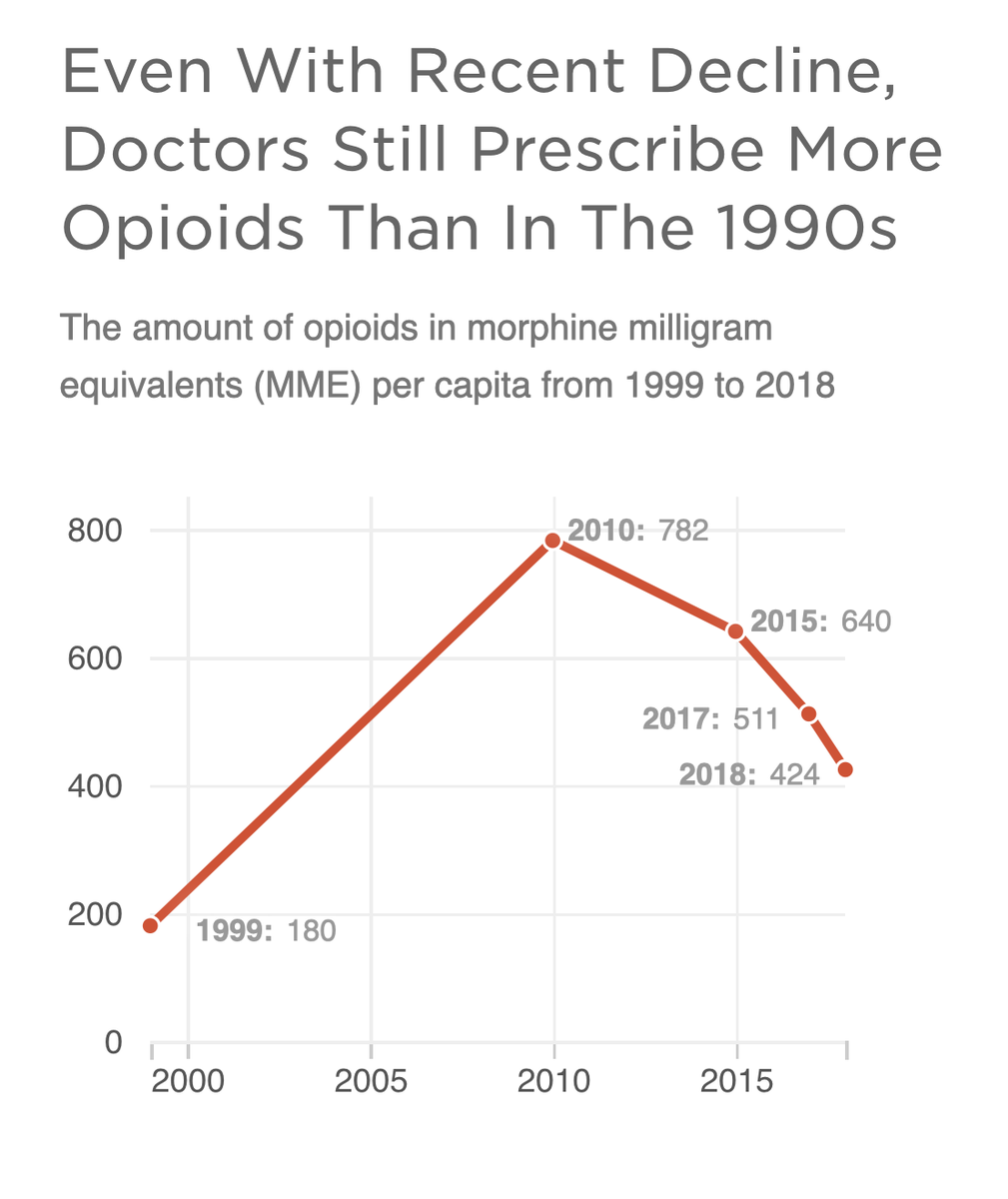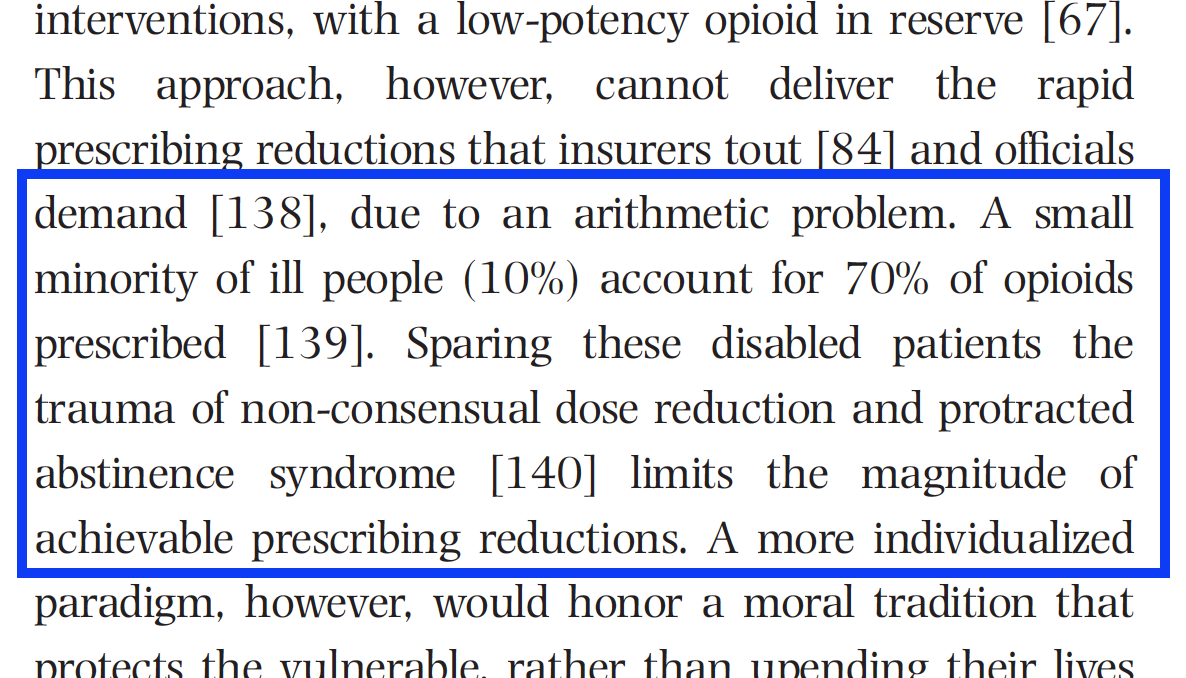1/The NPR #opioid “flood of prescriptions“ piece distressed many. I can’t speak to that, without first saying where it’s right. We have no reason to doubt that docs and dentists write many #opioid prescriptions, on autopilot, that are unjustifiable. https://www.npr.org/2020/07/17/887590699/doctors-and-dentists-still-flooding-u-s-with-opioid-prescriptions
2/To wit: I was sitting in a meeting (pre-COVID) working through analyses of prescription #opioid stoppage when our analyst declared that his teen was sent home from a recent knee procedure with *45 days worth of pills* when three were needed. This is real.
3/Sloppy autopilot work by docs is not unique to #opioids. Patients know it. One paper compared physician notes to recordings of the visits. In 105 encounters, there were 181 charted findings that _did not take place_ & 455 findings that weren’t charted. https://academic.oup.com/jamia/article-abstract/27/5/770/5824779
4/That said,I see NPR's piece as pushing a 2020 CDC study beyond its conclusions. It's also imbalanced to not show a 2020 study in @bmj_latest finding most prescriptions “are under the recommended thresholds, suggesting that most US providers are careful” https://www.bmj.com/content/368/bmj.l6968
5/Such seemingly-at-odds findings can be reconciled, but that is *why we want a broad range of interviewees in a investigative report*, to ask "what do seeming opposite findings tell us?" Even moreso in a report that concludes with a striking demand for increased public anger.
6/Of more serious concern was NPR's deployment of “total milligrams” being still higher than in 1999 as a sign of refractory ignorance by doctors, without asking, like a reporter would ask, what the numbers *mean*. Because we published that in 2019. https://onlinelibrary.wiley.com/doi/abs/10.1111/add.14394
7/10% of patients consume 70% of #opioid milligrams. Many are seriously ill.If you want the mg total of 1999, forced stoppage _on THEM_ is the ONLY way to do it. It’s math! In 2019, 3 federal agencies declared a safety concern about doing that.None are mentioned in NPR's report.
8/This @npr piece distressed me in a deeper way, since pain care was relegated to background as “complicated & frustrating”. It should have been foreground
My talk “Pain,Opioids & Choices” covers the missing issues from a primary care viewpoint
My talk “Pain,Opioids & Choices” covers the missing issues from a primary care viewpoint

 Read on Twitter
Read on Twitter



